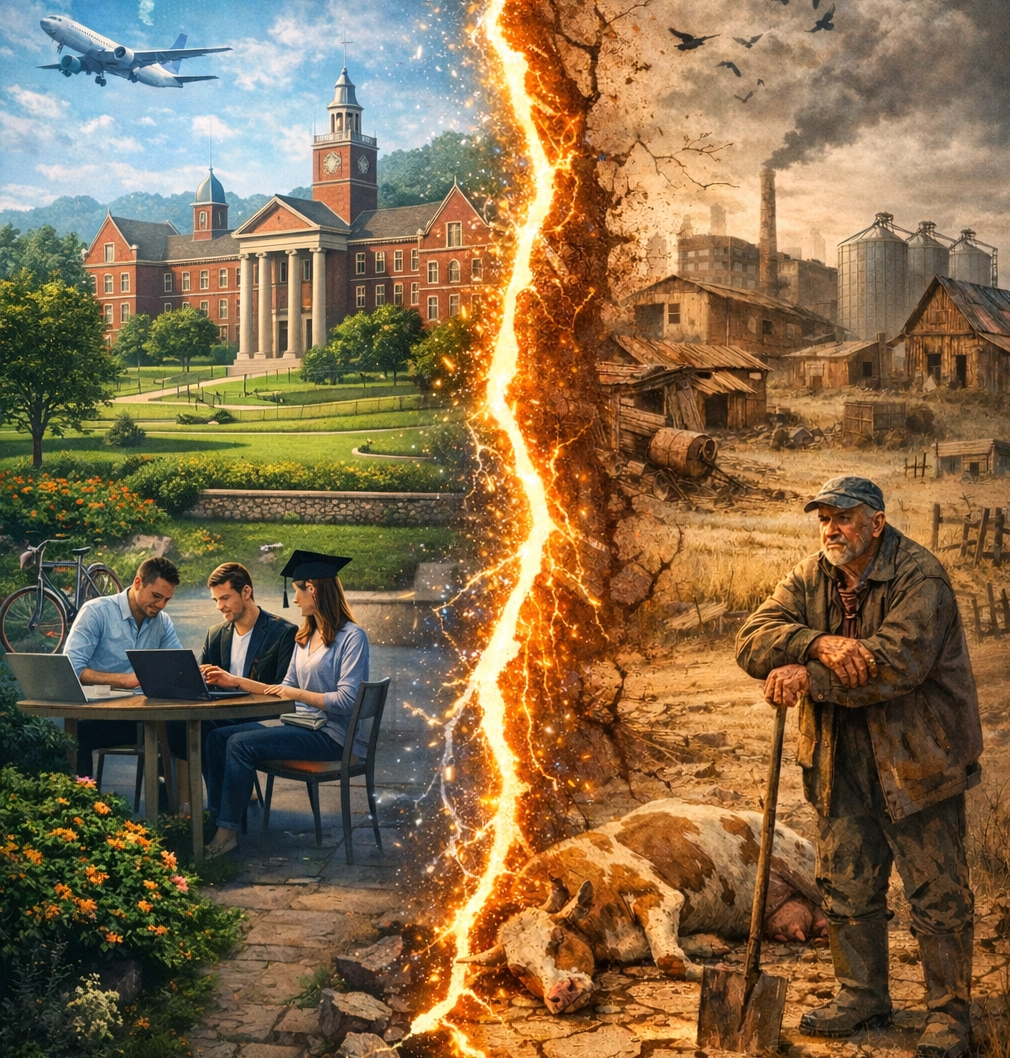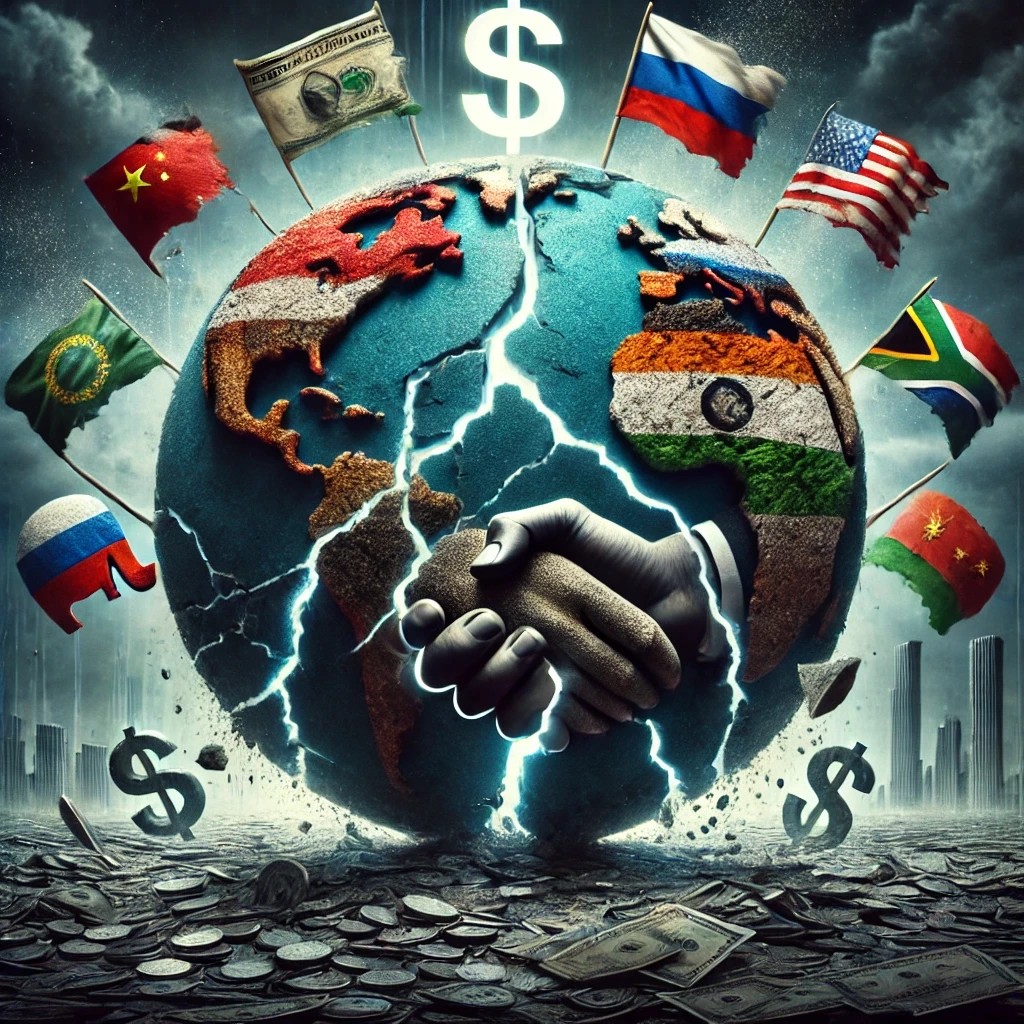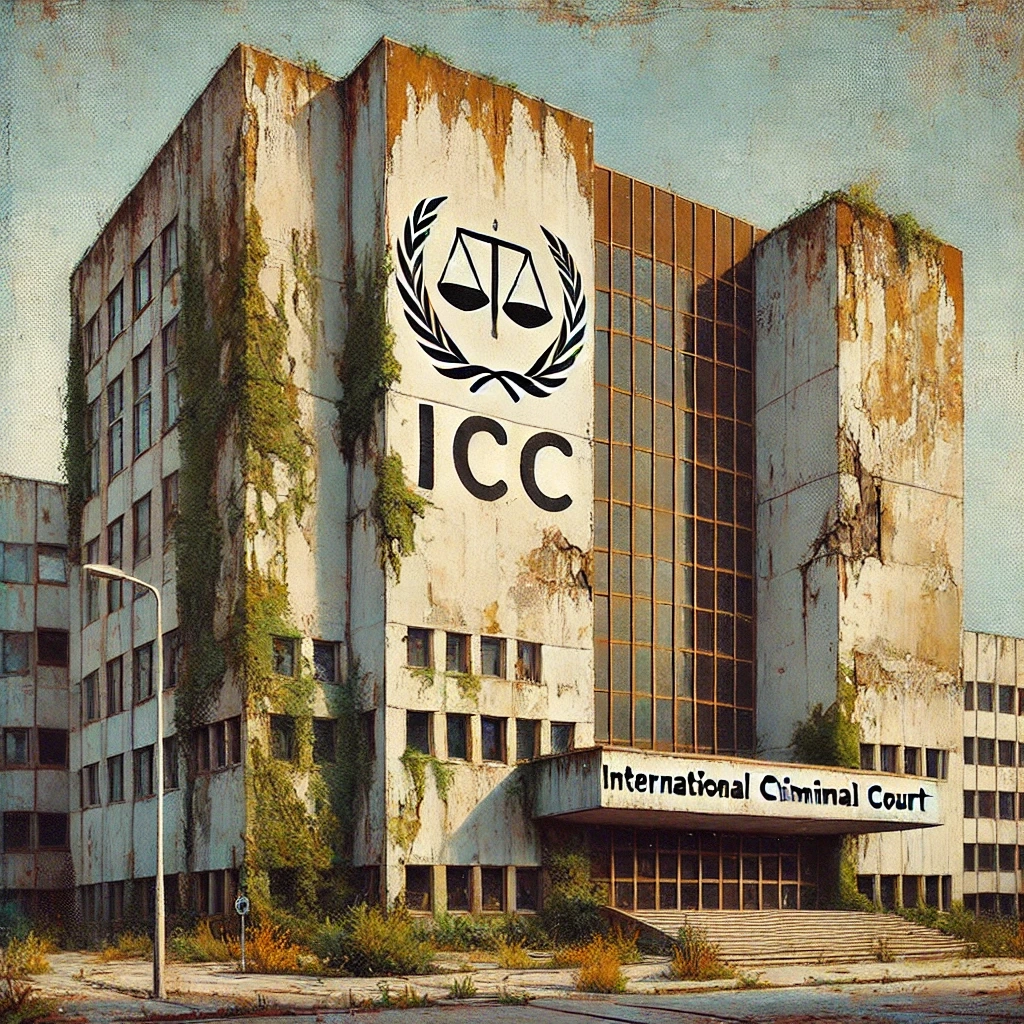The greatest threat doesn’t always look like an enemy. More often, it smiles, nods, and pretends to be a friend.
As a student, I once came across Hegel’s Philosophy of Religion. In it, he explores the development of religions as successive stages in the self-realization of the Absolute Spirit. He even finds room for the beliefs of the Inuit and the indigenous peoples of the Americas, integrating them into his philosophical framework.
But one omission struck me: he never mentioned Islam — a religion that by Hegel’s time had already spread across the Middle East, North Africa, and much of Asia, profoundly shaping science, culture, and legal systems.
Hegel left it out deliberately. Islam didn’t fit his linear model of spiritual evolution, where Christianity stood as the pinnacle of human religious development. Rather than challenge his structure, he simply ignored what didn’t align.
That’s when I decided to study Islam on my own.
I won’t burden the reader with theological nuances — I make no claim to be an expert. But from the very first pages of the Qur’an, I was struck by one thing: the extraordinary emphasis it places on hypocrisy — even more than on the struggle against nonbelievers.
In Islam, the munafiq — the hypocrite — is not just someone who harbors private doubts. He is an internal enemy. Someone who remains within the system while corroding it from the inside, dismantling its foundations.
With a nonbeliever, the lines are clear: they are on the outside. The hypocrite is harder to see. He might stand in the front row at prayer, loudly preach justice and faith, wear the right symbols, say all the right words. But all of it — the performance, the imitation of principle — serves a single goal: personal gain, power, or influence.
Why do I bring this up now?
Because hypocrisy is not only a religious concept — it is deeply political. Islam is both a faith and a system of governance. Muhammad was not only a prophet, but a statesman, a legislator. He built a ummah — a political community that became the foundation of a state, and later, an empire.
Today, this idea has a direct parallel in Belarus.
In the struggle of the Belarusian people for freedom and democracy, hypocrites are not abstractions. They are real individuals — those who, cloaked in flags and slogans, have built comfortable lives and political careers in the West on the backs of others’ suffering. They turned someone else’s pain into their own asset — media exposure, funding, influence.
These are people who never risked anything themselves, yet claimed the right to speak for those who were thrown into police vans, beaten with batons, and who still rot in prison cells today. They shamelessly absorb donor funding, purchase property abroad — while others lose their homes, health, freedom, and homeland. And some — their lives.
Let’s Start with Those in Plain Sight
In Islamic tradition, those who knowingly reject the truth despite recognizing it are called kafirs — unbelievers. These are people who know what the law requires, what the constitution says, what international norms demand — and yet act as if these rules do not exist. They are fully aware of the crimes committed against the Belarusian people, and still choose to serve the dictatorship, actively obstructing Belarusians’ pursuit of freedom, democracy, and a dignified life.
We are used to projecting all evil onto a single figure — the dictator. It’s convenient. It simplifies the picture, turning a system of violence into a personal pathology or psychiatric case. But a dictator does not exist in a vacuum. He wouldn’t stay in power for a single day if not for those who carry out his orders, echo his lies, and wrap his crimes in a cloak of legality through legal manipulation.
The first image that comes to mind when we think of a regime enforcer is the riot policeman — the OMON officer with a shield and baton. He’s trained to attack whoever he’s told to. Trying to speak to him of honor, duty, or morality is like lecturing a guard dog. He is not an independent actor — he is an instrument, a tool in someone else’s hands. That’s why the so-called “conversation with riot cop Seryoga,” staged by a Belarusian restaurateur while nibbling his lip, rang so hollow. You can’t reason with someone who has been trained not to think.
And mercenaries — as history has shown — rarely stand their ground against those fighting for ideals, for freedom, for their homeland. The vast and disciplined Persian army faltered before 300 Spartans who fought not for pay, but for their land. It was routed at Marathon, humiliated at Salamis, and ultimately fled before the army of Alexander the Great.
OMON officers are just modern-day mercenaries. No matter how rigorously they are trained, they always drop their shields when confronted by people ready to fight to the end for their values.
The second obvious enemy is the one who gives crimes a veneer of legality — the prosecutor who uses legal fabrications to legitimize corruption, nepotism, and persecution. The one who prosecutes women and children to earn favor. He is just as easy to read — like an open book.
Many might find it almost comical that Prosecutor Andrei Shved opens criminal cases against Nazi collaborators — people who’ve been dead for eighty years. A modern-day witch hunter, except all the witches were already caught and burned long ago.
But there’s nothing funny about it. Fighting dead enemies carries no risk. It’s far safer than investigating real crimes — like torture and rape in prison cells. Or uncovering offshore schemes linked to the Lukashenko family. Or prosecuting the corporate raids systematically carried out by the dictator’s grown-up children.
There’s another reason for this ghost hunt. When the time comes to answer for what he’s done — to the families of those he imprisoned, whose lives he destroyed — Shved will, of course, claim innocence. He’ll say he knew nothing. That his name isn’t on a single document. That the blame lies with his deputies. He’ll insist he was too busy investigating World War II collaborators to notice that his subordinates were turning the country into a concentration camp.
But Shved isn’t a prosecutor. He’s a lackey. Servile, cowardly, and predictable. He may try to hide behind the shadows of long-dead collaborators or shift blame onto his deputies, but everyone knows: it was with his approval that people were thrown into prison for social media likes, for wearing the “wrong” color, or for a stray sentence in a comment. It was on his orders that homes and apartments were confiscated — from those who, unlike Shved himself, refused to live as slaves.
If there is to be justice — humane, fair, and honest — it must end with a trial. A public, transparent trial where he will answer to hundreds of citizens bringing lawsuits against him. Where he’ll be forced to listen to each person he robbed of freedom, of shelter, of loved ones — while he shielded the murderers. Every single voice he ignored. Every complaint about torture, disappearance, or abuse that he dismissed — in defiance of the law and the oath he once swore.
That would be merciful. Because he could meet the fate of his Syrian counterpart — a prosecutor under the Assad regime who was hanged from a ship’s boom without ever reaching a courtroom. No one wanted to hear his tired excuses about “following orders,” “difficult times,” or “having no choice” — the typical fog of words used to cover complicity in atrocities.
And standing right beside Shved is a small group of judges. People who, by profession, should defend the law, justice, and human rights — but who have become little more than mechanical scribes of political sentences. They hand down verdicts by phone call, sign off on prison terms the way an accountant approves a spreadsheet.
And Finally — the Third Group in Plain Sight: The Propagandists
The third and most shameless group — also fully visible to all — are the rabid propagandists: people like Azarenok, Mukavozchik, or Tur. Their role in justifying repression is equally obvious. But while Shved acts out of fear, these ones are driven by greed. Participation in the regime’s information meat grinder is handsomely rewarded: the crazier the claim, the higher the paycheck.
That’s why they rage against “the West” — despite the fact that some of them have never traveled beyond Belarusian city of Brest. It’s the usual game of “haven’t read it, but I condemn it.”
Where are the great condemners of the past now? Stavsky, Kochetov, Zhdanov — if they’re remembered at all, it’s only for the poison they spewed at writers like Pasternak, for their denunciations, their lies, and their persecution of free-thinking authors.
And if today it seems you can lie with impunity, humiliate without consequence, incite hatred without cost — tomorrow brings a different reality. Every such "broadcast" leaves a trail. And one day, at a market, on a bus, or in a clinic, someone will approach and say:
“You called my brother an extremist — just because he carried a flag.”
“You called my sister a prostitute — because she wasn’t afraid to speak the truth.”
“You — are a being without a conscience.”
And some won’t stop at words.
Society doesn’t always have the patience to wait for a courtroom. Sometimes, it takes justice into its own hands.
After the fall of the Third Reich, Nazi propagandists and regime journalists were publicly humiliated and beaten. Female propagandists were shaved bald and expelled from their towns. Some tried to hide, changed their names. Some — unable to bear the shame — took their own lives.
In Romania, after the execution of Nicolae Ceaușescu, crowds stormed the state television building. Several prominent anchors — who had read the regime’s lies on air — were beaten right in the studio. They were evacuated under armed guard, not for their safety, but so they could stand trial — not before the public, but before the court.
In Serbia, after the fall of Slobodan Milošević, staff at RTS — the regime’s flagship propaganda channel — couldn’t walk the streets for years without facing threats, spitting, and scorn. In Georgia, after Mikheil Saakashvili’s departure, his loyalists at Imedi TV and Rustavi 2 were spat on in marketplaces, pelted with garbage, and cursed in the streets.
History shows: regimes collapse. And authoritarian ones collapse the fastest.
They don’t survive their own satraps because their entire structure is built on absolute, centralized control. Unlike late-Soviet leadership or modern China — where there is at least a façade of collective governance and some legal constraints — in a classical autocracy, there are no checks and balances. And where there are no institutions capable of functioning without a “leader,” collapse is inevitable. Once he disappears — whether by natural or unnatural causes — the system crumbles like a house of cards.
That’s when the stamp on a verdict becomes an exhibit, and the judge’s robe — not a shield of immunity, but a piece of incriminating evidence. That’s when the words “I was just following orders” no longer offer protection.

The Judgment of Cambyses: Arrest and Execution of a Corrupt Judge
After World War II, Germany held a special tribunal for Nazi prosecutors and judges — The Judges' Trial at Nuremberg. On the bench sat those who had sentenced people “according to the law,” giving crimes the appearance of legality.
It was the same in Romania after the fall of Ceaușescu, when judges who had issued political rulings were stripped of their titles, pensions, and judicial immunity — and themselves became defendants in criminal trials.
The same happened across many Latin American dictatorships.
Belarus will be no exception.
In the meantime, we must remember:
No verdict delivered on political grounds holds any legal or moral weight. It has already been nullified in the minds of the people. And each person who signed such a sentence has already passed judgment on themselves — for now, only in the eyes of history and society.
But this is not a story about kafirs…
Dictatorship is not just a cowardly prosecutor, a "motivated" propagandist, or a security officer trained to beat the unarmed.
It is a sprawling, multilayered system of interests — and among the open beneficiaries are those who appear to be “on our side.”
They wear the right symbols, take selfies with the right people, say exactly what donors and the public expect to hear.
They form the regime’s second line of defense.
These are the hypocrites.
They cloak themselves in white garments, speak of freedom, justice, and change — but work tirelessly to ensure that nothing changes. They don’t throw people into prison vans. They don’t sign sentences. Their weapon is simulation. They speak in the name of democracy, but sabotage real action. They preach solidarity, but sow division and erode trust. They create useless structures to smother initiative and deaden the living energy of those who fight.
They speak of security and the “interests of the people,” yet leak information — deliberately — to isolate the most principled and dangerous activists from within.
They beg the West for money “to fight the regime,” then divert funds to hollow projects — just to ensure that real changemakers never receive support.
Among themselves, they mock the prisoners, the exiles, those who lost their homeland, their homes, their health, or their lives.
They see them as fools — because they, unlike the victims, managed to monetize the tragedy. And to discredit the very idea of resistance and destroy public faith in democracy, they flaunt expensive accessories, luxury lifestyles, and million-euro turnovers — while the people, both at home and in exile, are literally struggling to survive.
Their goal is clear:
To ensure that democracy in Belarus never truly wins. That it remains forever confined to international conferences, grants, panel discussions, and “civil society forums” organized for their benefit. Because real victory — the people’s victory — would spell the end of their comfort, their money, and their well-cultivated status as “representatives of the Belarusian people” in cozy European offices.
It is about them that our next chapter will speak.









